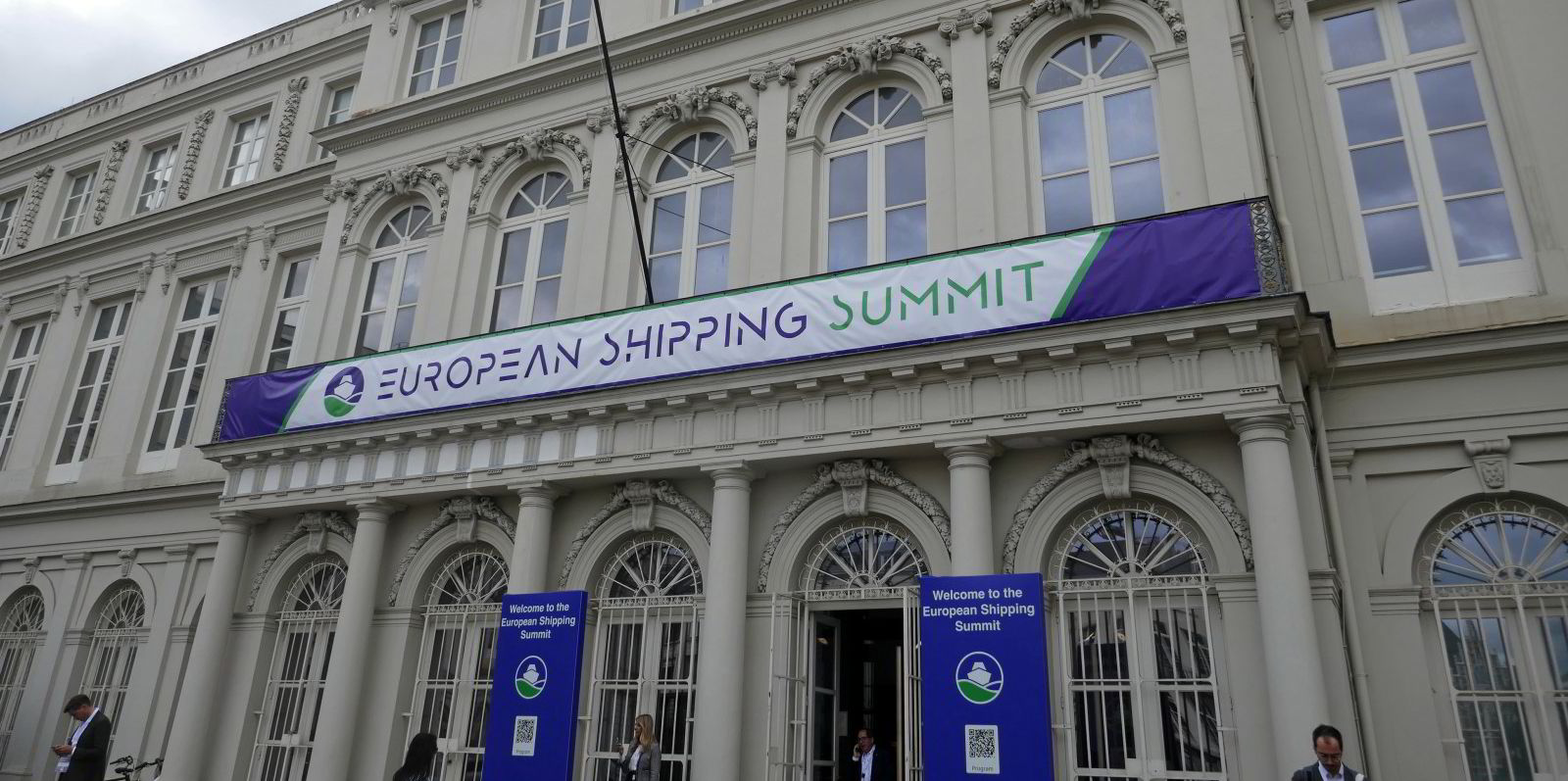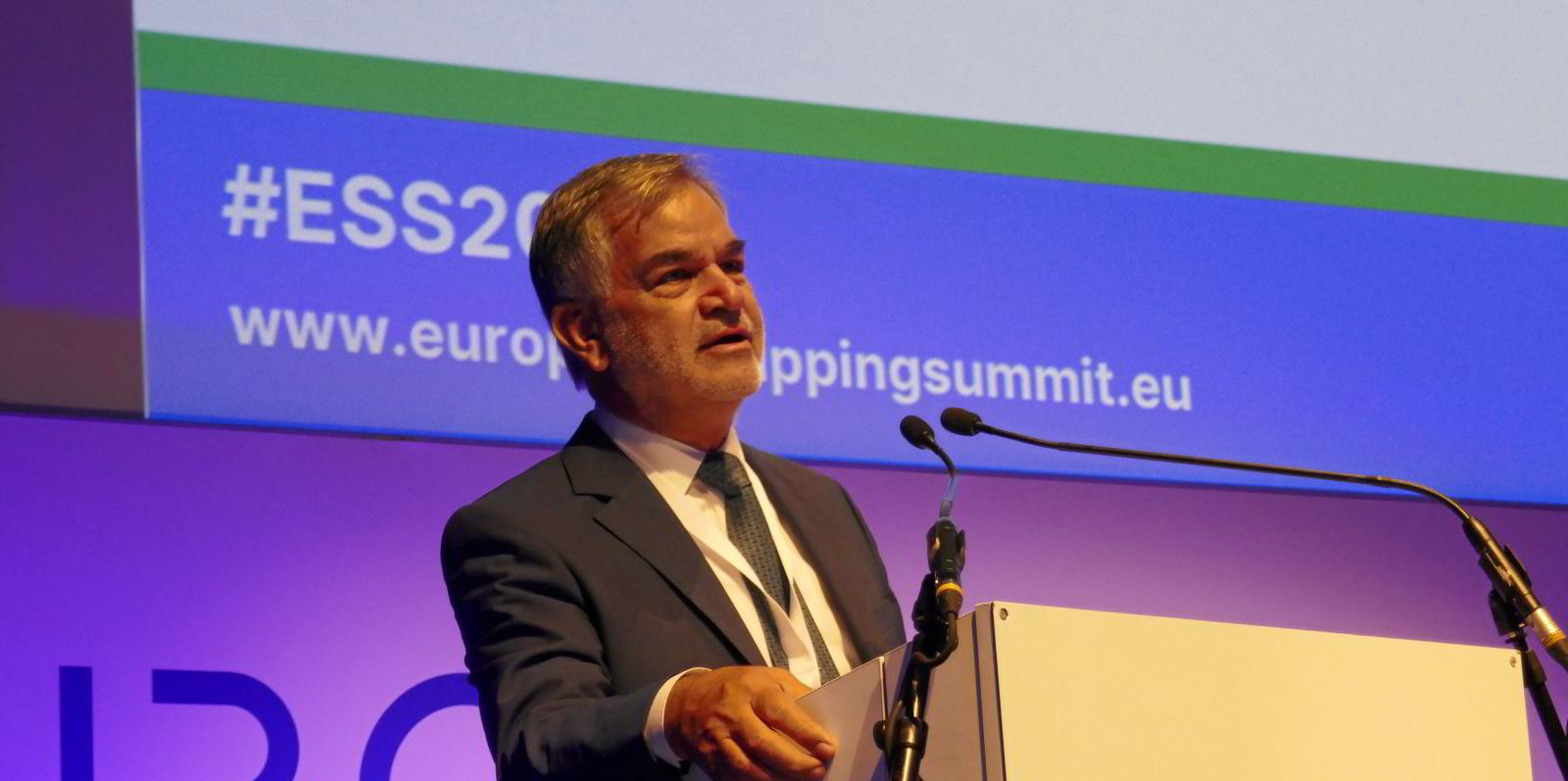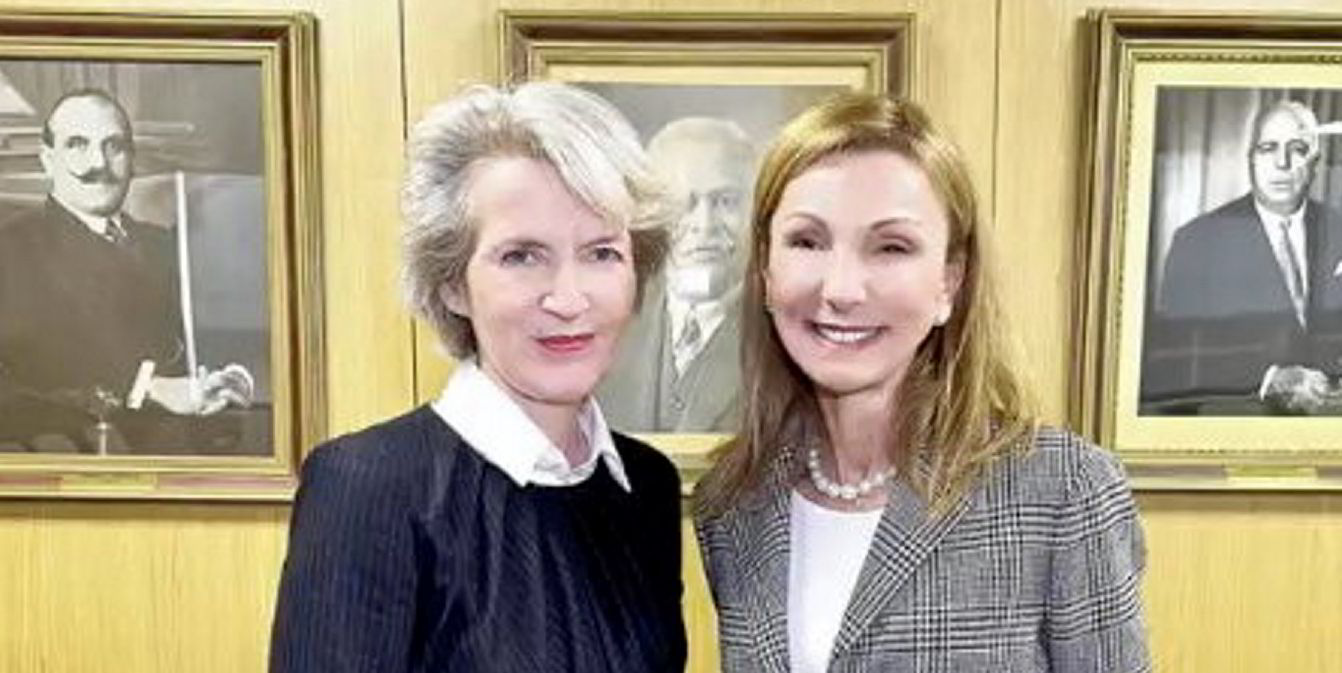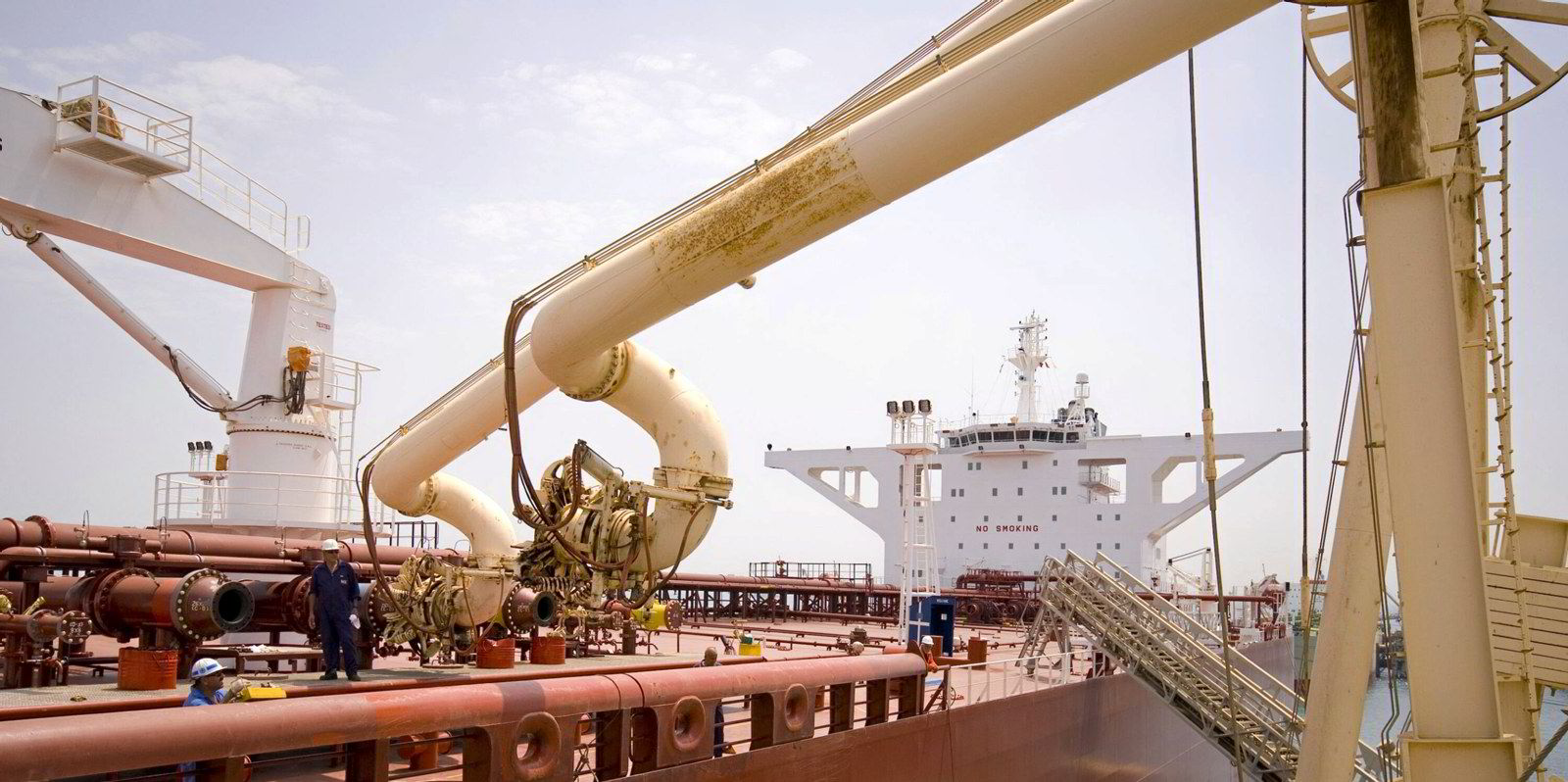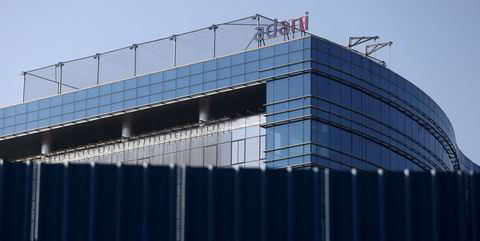Greek and German shipowners often fail to see eye to eye when it comes to maritime policymaking in Brussels, however, they go out of their way to present a united front.
The Union of Greek Shipowners (UGS) and the German Shipowners’ Association (VDR) came together in the EU capital on 19 September to show Europeans that their continent “goes dark without shipping”, according to the title of an event they jointly hosted.
It was the highlight on the opening day of the European Shipping Summit, a new event organised by the owners’ Europe-wide lobby, the Brussels-based European Community Shipowners’ Associations (ECSA).
“The shipping industry has kept over the years a very low profile,” ECSA president Philippos Philis said.
According to Philis, shipping proved its “strategic value” to Europe twice over the past three years — first by keeping supply chains humming during the Covid pandemic and then by helping the continent replace Russian pipeline gas after the war in Ukraine.
That value, however, “is not yet recognised”, Philis added, expressing a widespread feeling among industry players.
“Shipping in Europe needs more attention, and appreciation,” said Irina Haesler, head of VDR’s representation at the EU in Brussels.
In the past, shipowners used to thrive in discretion. In a time of instant communication and public scrutiny, however, that posture can no longer be maintained.
Lack of visibility leads to less, or the wrong kind of public attention in the shipowners’ view, and therefore to less clout with policymakers.
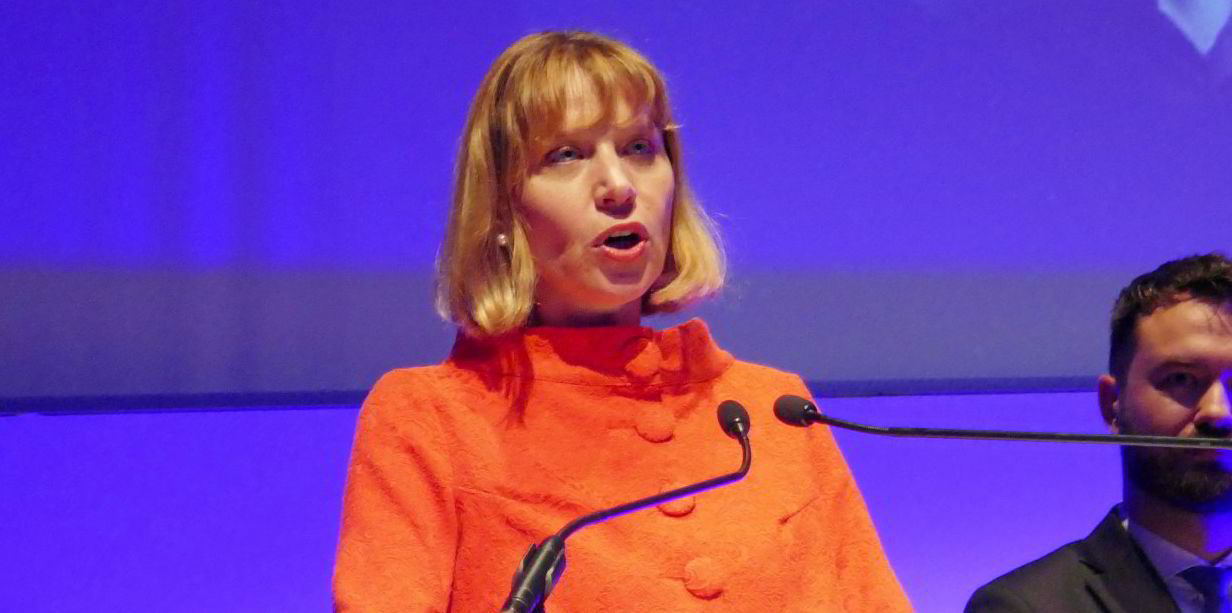
As those policymakers draft and pass ever more intrusive regulation, shipowners complain they do not get the say they deserve — especially compared to the influence they believe their Asian rivals have on their governments.
“All of the three major Eastern economies incorporate shipping in their strategic plans … much more, I am sorry to say, than the European Union does,” said Dimitris Fafalios, secretary of the UGS board and chairman of international dry bulk owners association Intercargo.
An upgrade of shipping’s status at EU level could come, for example by reserving one part of the Brussels bureaucracy for the maritime industry, Fafalios suggested.
“We need to centralise within one directorate because at the moment we are divided,” he said, evoking the Asian model in which it is the ministries of transport through which all maritime-related policy goes.
Hans van Steen, the principal advisor in the European Commission’s 2050 carbon neutrality strategy, admitted competency overlaps within the EU.
“What we’re doing in the EU can sometimes look fragmented and maybe not 100% coordinated… but we speak a lot across different departments in the Commission and we try to look at this in a very holistic and integrated fashion,” he said in response.
At the same time, van Steen reminded owners that the EU has to balance many different interests in a rapidly changing world and must set itself ambitious targets.
“The world is moving and we have to move with it,” he said.
Relations with Russia are another sore point.
European owners see their strategic role for Europe vindicated by the fact that they helped EU countries swiftly replace pipeline natural gas imports from Russia with seaborne LNG from the US or Qatar.
It was European owners as well, particularly from Greece, that also transported more than half of all grain exported by Ukraine through a UN-led safe corridor.
Russia sanctions
The media, however, rather focus on European shipowners’ ongoing role in carrying Russian oil to third countries under a price cap.
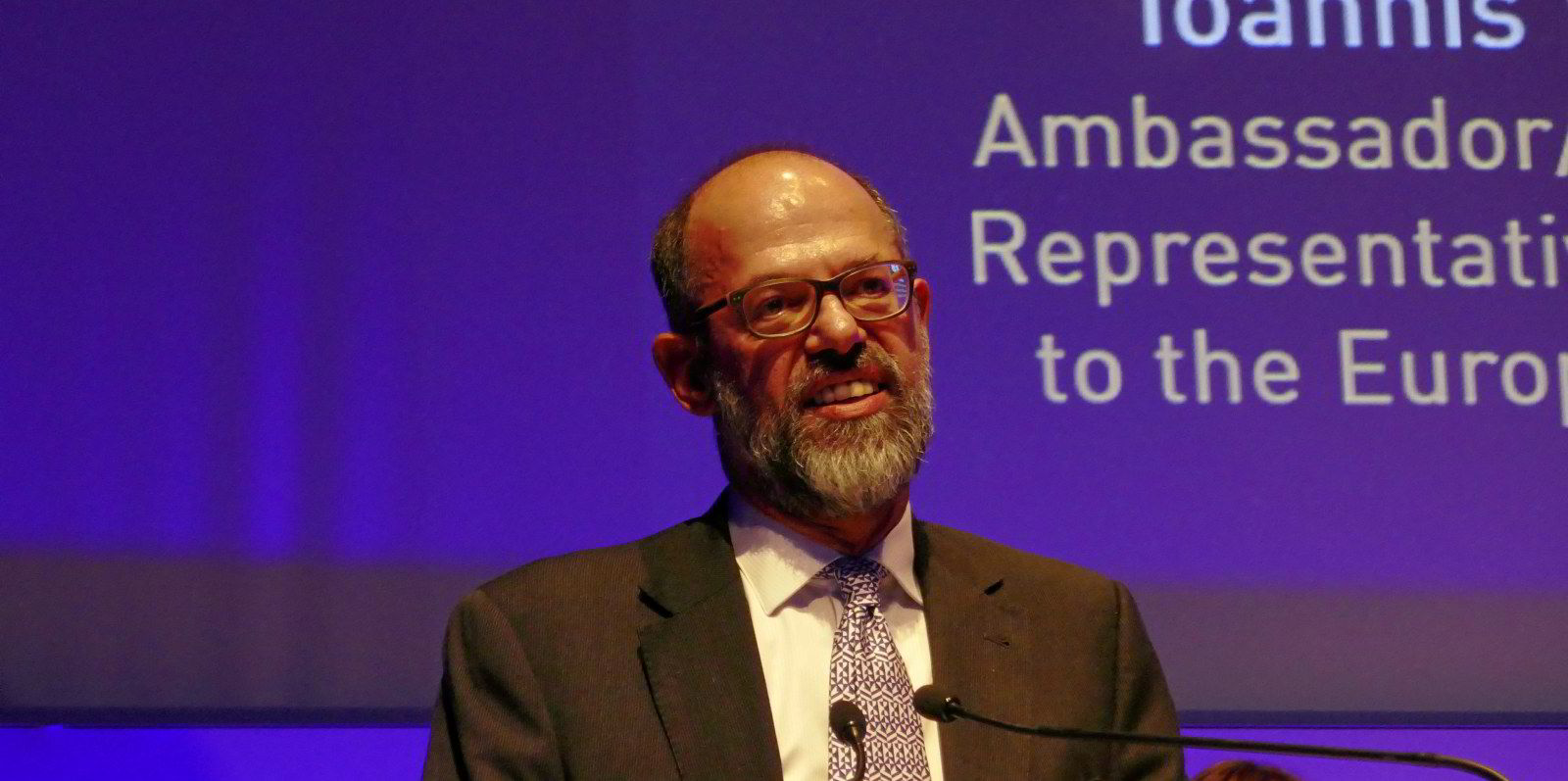
Some critics have argued that European shipping nations’ lobbying caused the Russian oil price cap to be higher than it would otherwise have been. Others claim, citing aggregate market data, that some Greek owners carry Russian oil even above the price cap.
A senior Greek diplomat, however, said on Tuesday that the EU has an interest in its ships carrying Russian oil.
“It is to the EU’s advantage to have European ships carry Russian oil to third countries, as allowed within the oil price cap agreed by the G7, rather than have a shadow fleet and ships from other countries ready to take care of this particular business,” said Ioannis Vrailas, Greece’s ambassador to the EU.
“This way, we are much more in control and we can reduce the circumvention of sanctions,” he added.
